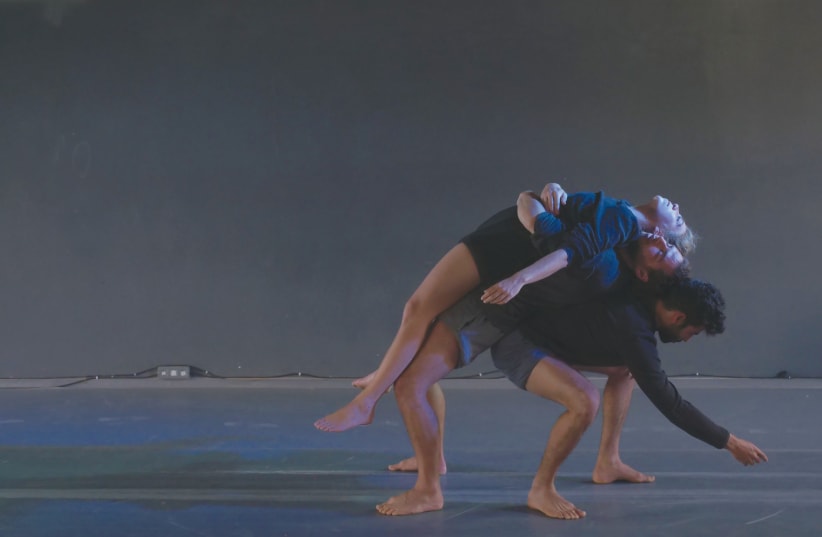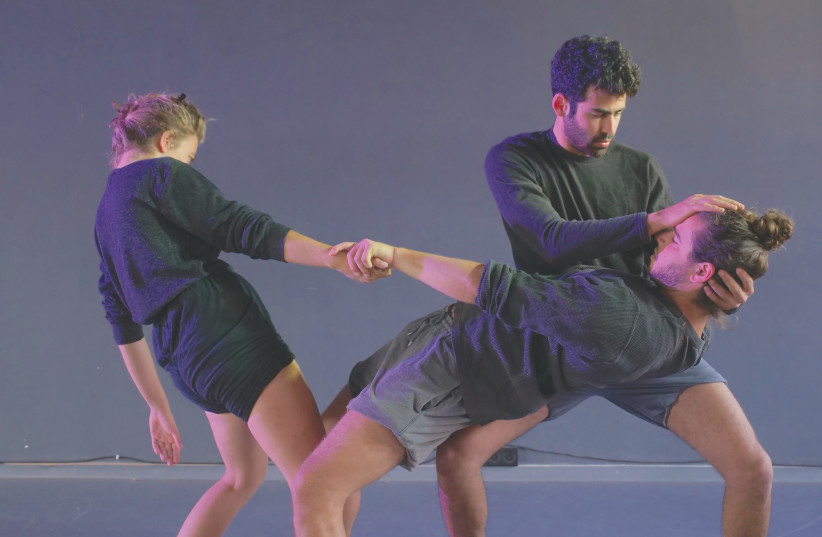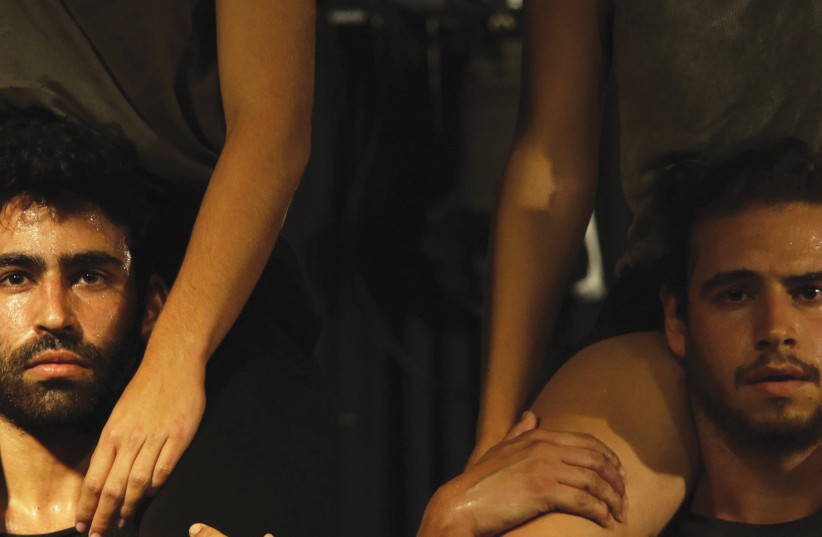Every week, construction workers in Israel meet their death on the job site. Some weeks, there is one such incident and in others, as many as three or four such deaths. These accidents are rarely reported on the news. There may be a short notice on one or two websites but the issue is certainly not one that attracts mainstream media attention.
“I have been paying attention to this topic for the past three years. Last week, three construction workers died on the job. No one takes responsibility for these accidents. The contractors don’t lose their licenses and the police don’t investigate the circumstances. A lot of the workers are Arab or foreign,” says dancer and choreographer Eirad Ben Gal.
When outside the dance studio, Ben Gal, 28, has a habit of walking around construction sites. Near his home in Sderot, there are many. “I’m starting to make a documentary film about the subject.”
Last year, Ben Gal sought to combine his two passions: dance and the desire to raise awareness about construction-site accidents. His solo Duet with a Concrete Block premiered as part of Tmuna Theater’s Intimadance Festival. However, upon completing the short solo, Ben Gal felt he hadn’t reached the full potential of the subject matter.
“I felt that there was so much to say about the topic that I wanted to continue it. I developed it into a piece that is fifty minutes long for four dancers. We are two men and two women and we are dancing about construction workers with props from construction sites,” says Ben Gal. “I can say that someone has died because money is more important than this person’s life and that impacts me, because that means that, in this society where wealth is more important than life, it affects all of us. I see a direct connection to our lives, to our relationships.”
The new work, entitled They Won’t Live in the Houses They Are Building will be unveiled as part of the upcoming Dance Film Festival hosted by the Adama Movement Center and the Sderot Cinematheque.
The festival will include live performances, lectures, workshops and screenings and will span six days. Among the events will be a workshop with filmmakers Tomer and Barak Heymann as well as screenings of Billy Elliot, Singin’ in the Rain, White Crow and Pina by Wim Wenders.
In addition to presenting They Won’t Live in the Houses They Are Building, Ben Gal will perform in a new piece with Liat Dror, who happens to be his mother. Together with her longtime partner, Nir Ben Gal, Dror has been creating dance since 1987. After years performing in the center of Israel, Dror and Ben Gal sought out new terrain for dance in Mitzpe Ramon, where they cultivated and directed a movement center that served as a beacon for dance lovers from all around Israel and abroad.
SEVERAL YEARS ago, they relocated their center to Sderot, a drastic and unexpected move to a part of the country seen by many as dangerous. Functioning alongside Sapir College, the Adama Movement Center provides an example of the impact that artistic practice and works can have on a community.
“I am their son and it’s as good as it gets,” says Ben Gal. “I think that they are both amazing people and I learn from them every day so much. I am lucky they’re my parents and even more that I love to do what they do. I learn from them and we are very good at making boundaries between when I’m their son and when I’m working with them.”
For the younger Ben Gal, staying in Sderot was an obvious choice. He attended the joint film and dance program at Sapir and then became a company member in Adama Dance Company. It has been two years since Ben Gal made the decision to stay in Sderot. “Sderot is beyond the periphery. The Gaza Envelope is the battered woman of Israel. It’s a very charged place with a lot of pain and I feel that we need different art here,” he says.
In his eyes, Black Belt, in many ways, is a response to recent events in the settlements surrounding the Gaza Strip. “Black Belt is a piece that talks about, as I see it, the insanity of western culture, about the pain that there is in western culture. And about life in Sderot. Recently, there was a military operation in Gaza, which I doubt anyone heard about, but here in Sderot we felt the tension every day. We live with this fear and uncertainty. This year, due to corona[virus], things were canceled. A lot of uncertainty entered our lives. But here, in the Gaza Envelope, you’re always in uncertainty. There can be a siren at any point, studies can be canceled, life can be put on hold. I connect it to the western culture, not sure it’s the poet’s intention, I feel the larger context of society and I recognize that someone benefits from there being a war.”
And though Ben Gal has spent several years living in the most volatile part of the country, this last operation, Guardians of the Wall, shook him significantly. “I was not able to function. I cried a lot. I had a big crisis, which I still feel. It didn’t ease me that it got to the rest of Israel. Maybe it would have if there had been a change in the policies but there wasn’t. It has been a month since and nothing has changed. Yesterday I heard tons of planes going to Gaza at night and thought that it’s only a matter of time until it happens again.”
Despite the stress, Ben Gal believes everyone should visit Sderot. “If we’re going to make a change, people should come here. The Adama Center is incredible and has amazing content. There’s life here. I described how hard it is to live and work here but within the difficulty, there is wonderful life here. Whenever people come here it’s very moving and it creates something that I love. People should come here and see even if it’s just for a few hours. Every visit supports art and the social-political action occurring here.”
The Dance Film Festival will take place at the Adama Movement Center and Sderot Cinematheque from August 8-13. For more information, visit www.adama.org.il.


